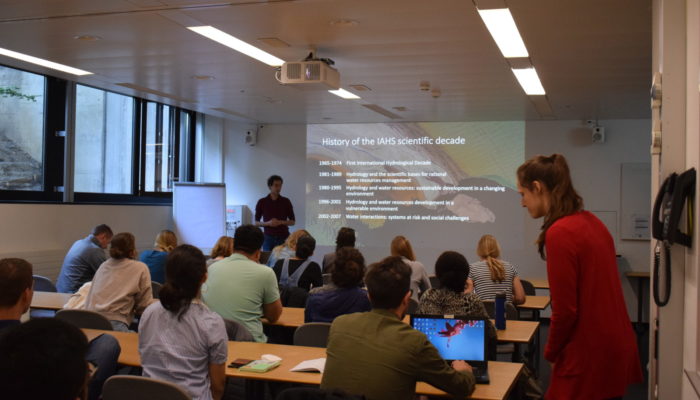
In 1965, UNESCO launched the first International Hydrological Decade to promote hydrology as an independent scientific discipline. This initiative has since grown into a global movement boosting hydrological research around a changing theme: the International Association of Hydrological Sciences (IAHS) Scientific Decades. The last two decades have shown that community efforts can shape the field of hydrology and increase collaboration between different groups. Their names may sound familiar: Prediction in Ungauged Basins (PUB, 2002-2012) and Change in Hydrology and Society (Panta Rhei, 2012-2022).
As the current decade is coming to an end, it is time to discuss the theme for the next decade. For the past two decades, the theme was developed through discussions during symposia, in online blogs, and at specific sessions at IAHS scientific assemblies. These sessions were open to any and all hydrologists. However, the opinion papers presenting the final themes were written mostly by well-established researchers.
This shows that although the discussions were open to early-career scientists (ECS), they were rarely involved in writing the opinion papers.
To promote the involvement of ECS in the discussion on the next theme, we decided to become active and to organise discussion sessions specifically for ECS. We – this is a group of PhD candidates of Wageningen University & Research – who gathered in spring 2022 to go on a trip through Europe. The perfect occasion to organize ECS discussion sessions on the next IAHS scientific decade.
We visited five institutes in four countries: the Karlsruhe Institute of Technology, the Luxembourg Institute of Science and Technology (L), the Delft University of Technology (NL), the Albert-Ludwigs University of Freiburg (D), and the University of Zürich (CH). At these institutes, we organised ECS discussion sessions starting with a short presentation on the history of the scientific decades and the idea of our project. We then split the participants into small groups to give everyone the opportunity to share their thoughts. Finally, each group summarized their ideas, which we discussed with the whole group. Of course, we also had plenty of time to interact with the other ECS during activities such as field and lab visits, a treasure hunt through Zürich, and a visit to a brewery. This combination of social and scientific activities laid the perfect ground for stimulating discussions about where our science should go.
After the trip, together with the co-authors, we combined the discussions in an opinion paper (link). In this paper, we present how we see hydrological threats due to climate change and population growth to be the central problem for hydrology in the coming decade. We are convinced that the theme of the upcoming decade should help tackle these hydrological threats. We identified three potential themes for the next decade: “Tipping points and thresholds in hydrology”, “Intensification of the water cycle” and “Water services under pressure” (Figure 1).
Although this project led to a more active ECS participation in the discussion on the next IAHS scientific decade theme, we could only reach a limited group of hydrologists during our trip. We would therefore like to encourage ECS across the world to share their opinion, get involved in the IAHS scientific decade discussions, and organize their own ECS discussion sessions. To help you get started, we wrote some guidelines based on our own experience. We hope to see a lively discussion as a result of this project!

Figure 1: Identified potential research directions

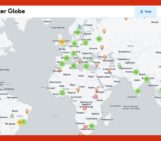
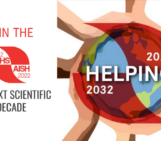
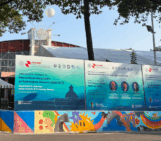
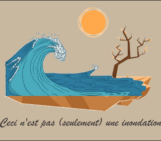
Chang Liao
Fascinating discussion. In my opinion, our challenge in hydrology depends on the scales and interactions with other Earth system processes. And there is probably some priority issue in different aspects.
https://changliao.github.io/science/posts/2023/03/02/where-should-hydrology-go